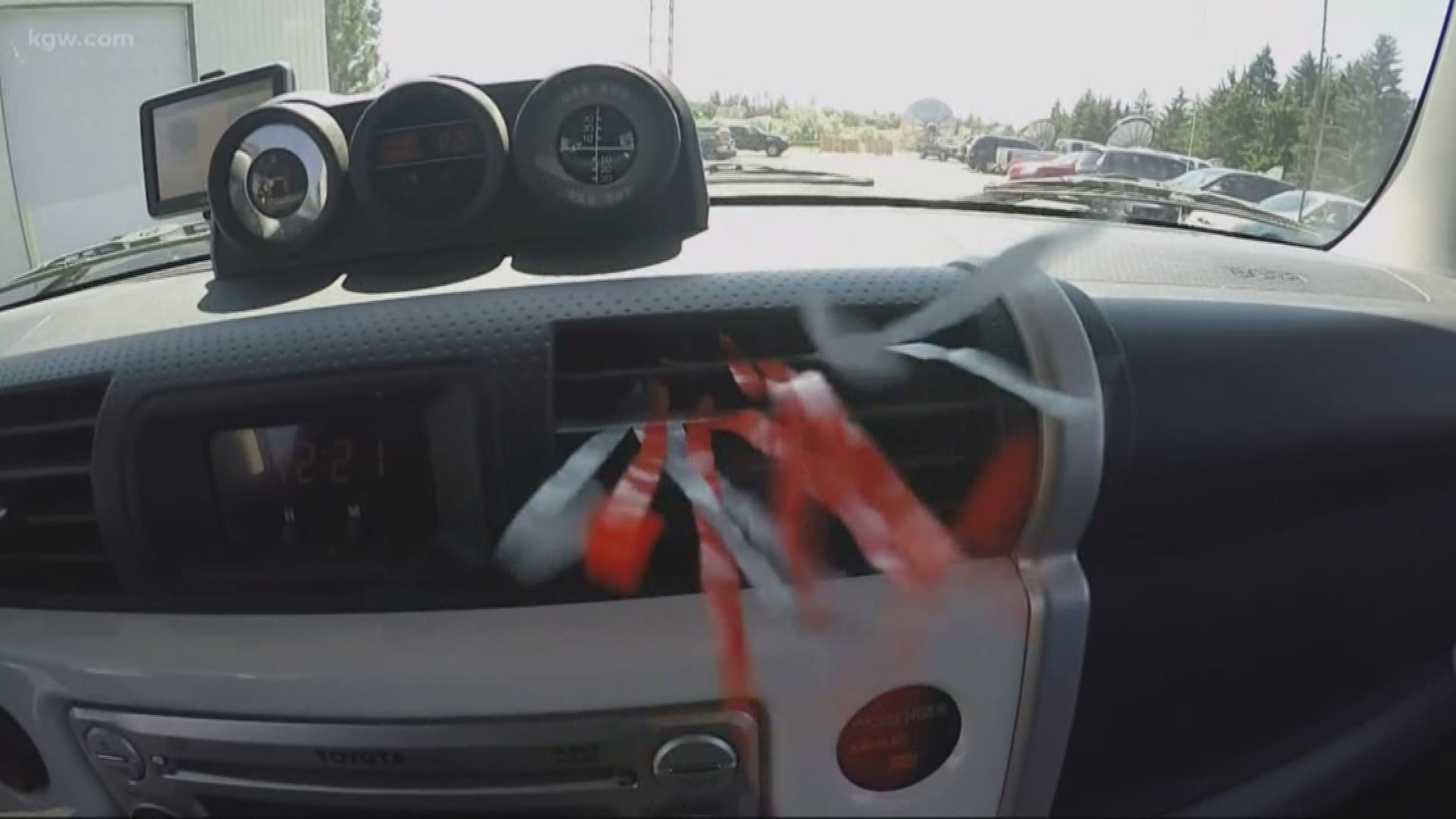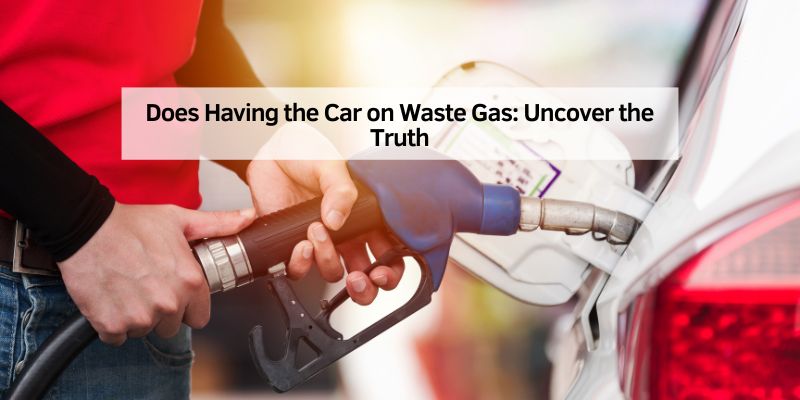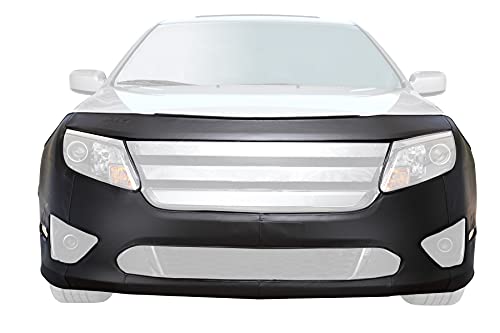Does Having the Car on Waste Gas: Uncover the Truth
Yes, leaving your car running can waste gas. Idling burns fuel without moving, leading to unnecessary consumption.
Cars are designed to be efficient when moving, not while parked with the engine on. Many drivers leave their vehicles idling, thinking it saves time or is harmless. But this habit can have surprising effects on fuel consumption. Every minute your car idles, it burns fuel and adds to costs.
Beyond personal expenses, idling contributes to environmental pollution. Even if the car is stationary, the engine still operates. This means fuel is consumed without any real benefit. Understanding how idling impacts fuel usage can lead to better habits. It encourages drivers to turn off engines when not needed. This simple change can save money and reduce environmental impact.

Credit: newshi-aaa.iprsoftware.com
Impact Of Idling
Idling makes the engine work harder. This can cause extra wear and tear. Engines have many moving parts. They can wear out faster when idling. Oil gets dirty too. Dirty oil can cause damage. Engines need clean oil to run well. Idling wastes fuel. It uses fuel without moving the car. This can cost more money. Fuel is not cheap, and wasting it is not good.
Idling cars let out more harmful gases. These gases can hurt the air. Clean air is important for health. Idling also makes more carbon dioxide. Carbon dioxide can harm the planet. It adds to global warming. Idling cars can make the air dirty. Dirty air can make it hard to breathe. Animals and plants also need clean air. Idling is not good for them either.
Fuel Consumption Myths
Many people think idling uses less fuel than restarting the engine. This is not true. Restarting your car saves more fuel than keeping it on idle for long. Another myth is that a bigger car always consumes more gas. Modern technology makes some big cars more efficient. People also say that keeping windows open uses less fuel than air conditioning. Both can affect fuel use, but it depends on your speed. Understanding these myths can help save fuel.
Scientists have studied how cars use fuel. They found that driving habits matter a lot. Hard braking and rapid acceleration waste more gas. Regular maintenance keeps the engine efficient. Aerodynamics also affect fuel use. For example, roof racks can create drag. This makes the car use more gas. Knowing these facts helps make smarter choices.
Economic Implications
Leaving a car on wastes fuel. Wasted fuel means spending more money. Gas prices are high. Wasting fuel can hurt the budget. A car running without moving uses gas. This adds up over time. Saving gas saves money. Turn off the car when not needed.
Car parts wear out faster if the car is always on. More maintenance means more visits to the mechanic. This costs extra money. Oil changes might be needed sooner. Parts like the battery can wear out. It’s cheaper to turn off the car. This helps parts last longer.
Technological Advances
Eco-friendly engines help cars use less gas. They burn fuel cleaner. This means less pollution. These engines are better for the earth. They use advanced technology. Engines in cars today are much smarter. They help save money on fuel. Cars with these engines are quieter. They make driving more pleasant. Many cars have these engines now.
Idle reduction technologies stop engines when not needed. They save fuel while parked. Less gas gets wasted. These systems help engines start quickly. They save money and energy. Cars with these systems pollute less. They are better for the planet. New cars often have these features. They improve driving efficiency. Many drivers like these systems.
Behavioral Factors
Driver habits can greatly affect gas usage. Quick starts and sudden stops use more gas. Smooth driving helps save gas. Keeping a steady speed helps too. Aggressive driving is not good for fuel. It wastes gas quickly.
Unnecessary idling also uses gas. Turn off the engine when waiting. This saves fuel and money. Regular checks on tire pressure help. Low pressure needs more gas. So, keep tires well-inflated.
Traffic conditions have a big impact on gas use. Heavy traffic makes cars stop and start. This wastes more fuel. Stop-and-go traffic burns extra gas. Clear roads are better for gas use. Driving at off-peak times can help save gas.
Traffic lights affect fuel use too. More stops mean more gas used. Planning routes with fewer stops can save fuel. Use navigation apps to find the best route. This way, you use less gas and save money.

Credit: www.fuelexpress.net
Regulatory Measures
Governments create rules to save the planet. Cars make the air dirty. New laws want clean air. Cars must follow these laws. Old cars are a problem. They use too much gas. New cars use less gas. This helps the earth. Gas prices go higher. People buy cars that use less gas.
Companies make cars that help the earth. Standards tell them what to do. Cars must be clean and safe. Tests check how clean cars are. Cars must pass these tests. Electric cars use no gas. They are clean. People like electric cars. They help save gas.
Comparative Analysis
Cars can waste gas in many ways. Big trucks use more gas than small cars. Electric cars use less gas because they have batteries. Hybrid cars use both gas and batteries. They save more gas than only gas cars. Old cars often waste more gas than new ones. They do not have modern engines.
Gas usage changes by place. Cold places make cars use more gas. Engines work harder to keep warm. Hot places need more gas for air conditioning. Cities often have more traffic. This makes cars waste gas by stopping and starting. High places like mountains also make cars use more gas. Engines work harder to go uphill.

Credit: www.kgw.com
Future Trends
Cars wasting gas poses environmental challenges. Future trends focus on reducing emissions and enhancing fuel efficiency. Innovations aim to create greener vehicles, cutting waste and promoting sustainability.
Innovations In Car Design
Car designs are changing fast. New designs help save gas. Cars are becoming lighter and more streamlined. This reduces the drag and saves fuel. Electric cars are growing in number. They do not need gas at all. Hybrid cars use both gas and electricity. This saves more fuel. Smart technology is also used in cars. It helps to improve fuel efficiency. Cars can now talk to drivers. They give tips to save more gas.
Shifts In Consumer Awareness
People are learning more about saving gas. They want to help the planet. Many choose cars that use less fuel. This helps reduce pollution. Buying fuel-efficient cars saves money too. Drivers now think more about their trips. They plan to use less gas. Sharing rides is also popular. Fewer cars on the road means less gas wasted. Many people choose public transport. It is cheaper and saves gas.
Frequently Asked Questions
Do You Waste Gas By Leaving Your Car On?
Yes, leaving your car on wastes gas. Idling consumes fuel without moving, reducing overall fuel efficiency. Turn off your engine to save gas and reduce emissions. This simple action helps conserve energy and protect the environment.
Does Your Gas Go Down If Your Car Is On?
Yes, your gas decreases when the car is on, even if it’s idle. The engine consumes fuel to power systems and maintain readiness. Reducing idle time saves gas and money.
How Much Gas Do You Waste With The Car On?
Idling your car wastes about 0. 2 to 0. 5 gallons of fuel per hour. Fuel consumption depends on engine size and air conditioning use. Turning off your engine when parked saves gas and reduces emissions.
Does Keeping The Car On Consume Fuel?
Yes, keeping the car on consumes fuel. The engine burns fuel even when the car is idling.
Conclusion
Saving gas is crucial for every driver. Turning off your car when idle can help. It reduces unnecessary fuel consumption. Plus, it lessens environmental impact. Small actions can lead to big changes. Remember, every bit of gas saved counts. Simple steps keep the planet healthy.
Consider turning off your engine during long waits. This choice could make a difference. A greener future starts with mindful driving habits. Embrace smart driving for better efficiency. It’s not just about saving money. It’s about caring for our world.
Your actions matter. Drive wisely, save gas, and protect the environment.







